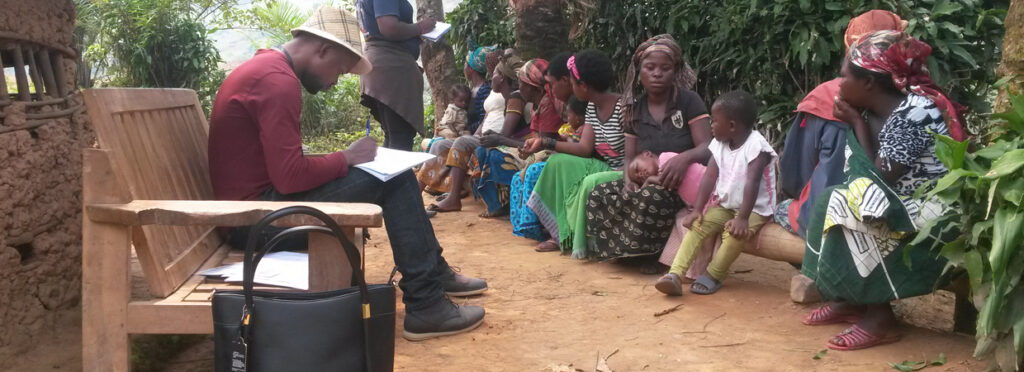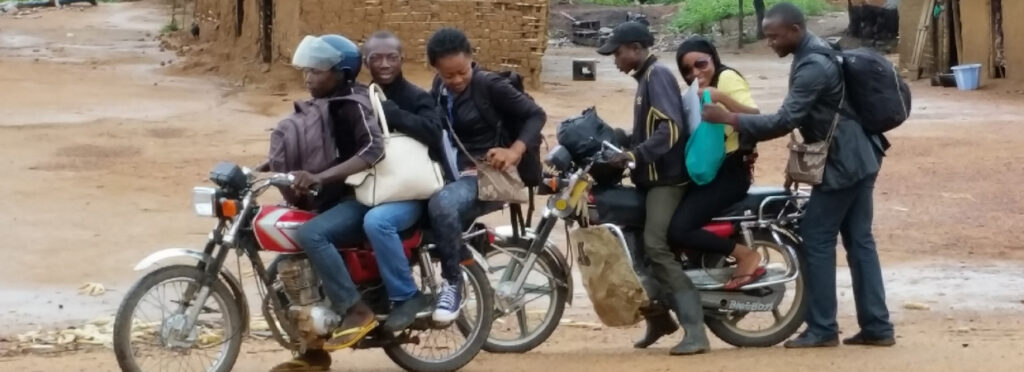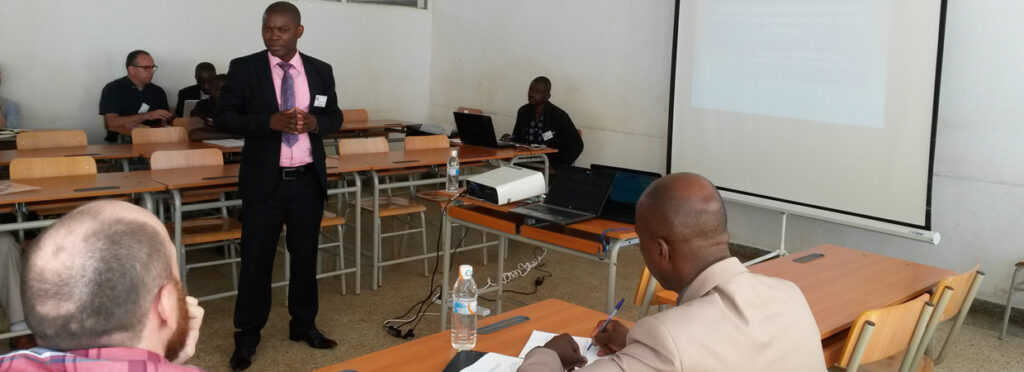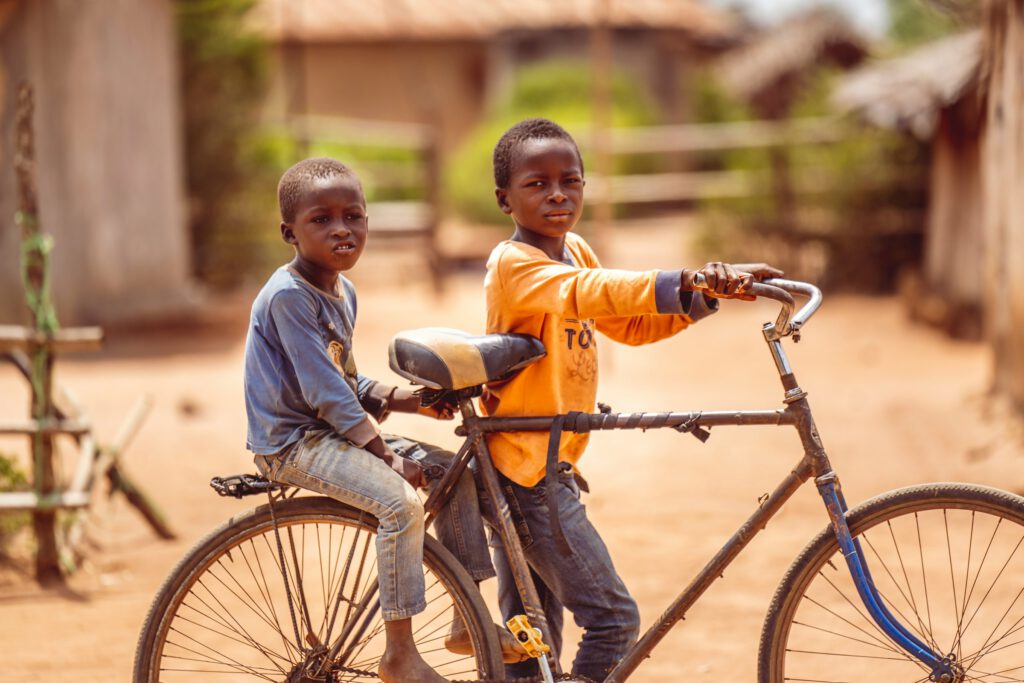Socio-economic crisis and political instability in the DRC : theemergency ofa scientific approach to the development
Many contemporary communities in general, including the democratic Republic of the Congo (DRC) in particular, are living in a situation of socio-economic situation. Thepolitical instability in the DRC for more than three decades has had a negative impact on the living conditions of the population. Conflicts repeated armed groups since the 90s came to accentuate thenegative impact of the crisis on the security, political, socio-economic development of the people and the governance of the States. The poor governance of natural resources has certainly contributed to the destruction of social networks and polluted the relationship between people and their environment.
The scientific research, the primary means accredited to identify problems, nhas not been used by the actors involved in the search for therapies to inhibit the basics of under-development, among which the hatred, trauma, poverty, the death by lack of care, discrimination, xenophobia, starvation, lack ofwater, lack ofelectricity, the improper use of theirreplaceable.
MOTIVATIONS
at this point, the justification ofsuch an organization doesnot needto be demonstrated ; three fundamental reasons that have motivated the launch of the Research Initiatives for Social Development (RISD) :
A strong demand for local researchers, research projects and the implementation ofassessments, whichhas not always been satisfied.
In many countries, including the DRC, in fact there are a large number of projects in development and funded research. These funds come from either of funders wanting to know about theimpact of their interventions, or ofuniversities driven by scientific questions on the socio-economic situation of the communities. There has been a strong demand for researchers and/or skilled human resources at the local level, which has always been dissatisfied. Organizations and individuals capable of filling this gap are rare at the local level, and cthat is why, RISD (Research Initiatives for Social Development) came to fill this gap in order to facilitate the task for the organizations and institutions that were often forced to rely on foreign resources, by training local teams, leading them to acceptable standards.
Staff and teams with training and experience unique in the field of research Evaluation : data Collection.
The staff of the RISD has received extensive training (research methodology, use ofequipment for the collection of digital data, such as tablets, PDAS, GPS, photographs, data processing programs (SPSS, ODK, Magpi, Survey CTO, Kobo Toolkit) and has a long history of data collection (qualitative and quantitative households, ofindividuals, local leaders, focus groups and dcommunity meetings, etc) in extremely difficult conditions and in war-torn areas, deemed inaccessible due to security or thelack of roads.
Use scientific research to understand and address the social problems at different levels.
Although the scientific research is still the best wayto identify the problems, the different actors, including governments and organizations involved in the search for solutions to the socio-economic challenges, nhave not used the research to understand the needs of their populations, and/or beneficiaries in order to understand what needs to be addressed and what has been achieved. Scientific research nhas not been exploited to search for therapies related to the aspects of the under-development, such as hatred, trauma, poverty, death, discrimination, hunger, lack ofsocial infrastructure, the misuse of public goods, etc

- Identify the problems of contemporary societies ;
- Collect qualitative and quantitative data to improve the governance of natural resources ;
- Assess the development projects implemented by governmental and non-governmental, intergovernmental and international.
- Ensure the follow-up development projects for those who need this service ;
- Provide advice for the development and implementation ofother projects ;
- Conduct polls on any matter considered necessary for the purposes of the research ;
- Train and raise the level of researchers.
- Conduct prospective studies ;
- Set of human resources qualified and trained to the provision ofother organizations and institutions in need of the services of the RISD ;
- Advocate for the rescue of populations identified as being at risk fromother actors in the development and/or donors for the shares ;and
- Compile and publish reports of research, articles, and working papers for scientific purposes ;
- Open a library for research purposes and for support ofother institutions and allow theaccess to the documentation needed to perform the research ;
- Participate in training organized by the partners, funders, following the same objectives ;
- Collaborate withother actors in the research to achieve the same objectives or goals are different, but interesting for the RISD.
- A number of development projects to feed his social orientation



Emmanuel KANDATE MUSEMA
Director-GeneralA graduate in international relations since 2010, with a considerable knowledge of research methodologies, assistant deducation in thetechnical college economic and trade Bukavu. Considerable experience in research with leading institutions such as the International Rescue Committtee, GK Consulting, Social Impact, Norvegian Church Aid, and universities such as Columbia, Massachusetts, Wagenigen, Harvard, Official University of Bukavu, the Catholic University of Bukavu. A founding member of the research Initiatives for the social development.
Pacific MAKUTA MWAMBUSA
Director of ResearchDoctor in political and administrative sciences, a teacher and a researcher at theofficial University of Bukavu since 2003. As an independent consultant in the field ofelections, governance, citizenship, gender, democracy and ofsocial policy development. A founding member of the research Initiatives for the social development.
Alain CUBAKA
Financial and Administrative officerEustache KULIUMBWA LULEGO
Field managerA graduate in public health since 2007. Has worked as the coordinator of research in the field for various research projects and institutions. Regional coordinator in 2010 and coordinator on the field of theassessment of theimpact of the reconstruction carried out by the communities. Worked with research institutions world-famous, such as theUnit ofassessment ofimpact of the world Bank, Columbia, Wageningen, Harvard, Social Impact, New York University.
Jean-Paul MUTACUMURA ZIBIKA
Former Director-GeneralCandidate for a master’s degree in fine art at theschool of governance of theuniversity of Mount Kenya. A graduate in applied pedagogy since 2008, assistant deducation part-time at theISP/Walungu, experienced in monitoring and evaluation and research with world-renowned professors. It focuses on capacity building in terms of research, field coordination, and public administration.
He has participated in many research projects in the foreground, and in particular those of theunit ofassessment of theimpact of the world Bank, the united Nations mission for the consolidation of peace, thehumanitarian initiative Harvard, the universities of Columbia, Harvard, and New York. Assistant deducation in the Walungu College and individual consultant to support monitoring andevaluation. A founding member of the research Initiatives for the social development.

